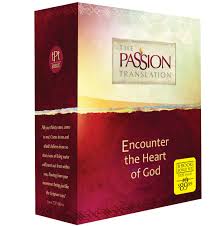If you want to know what this series is about see my first post here.
We have seen in an earlier post that ‘Dr’ Brian Simmons doesn’t have the background in Bible translation he claims to have had. Far from being involved in translation work with New Tribes he worked as a church planter. He presents himself as the ‘lead translator’ in the Passion Translation enterprise. However, his own account of how this work proceeds demonstrates he is the only ‘translator.’ Furthermore, the process doesn’t merit the description ‘translation work.’
What is Brian Simmons a doctor of exactly? On her very helpful fact sheet, Holly Pivec explains:
‘He earned his doctorate with the Wagner Leadership Institute (now called Wagner University) with a specialization on prayer. [Take note that the Wagner Leadership Institute is not a standard, accredited seminary or Bible College that offers academic courses on the Bible and theology. Rather it was founded to serve the New Apostolic Reformation (NAR). Non-traditional courses teach people about NAR and how to be apostles and prophets and work miracles.]’
So, Wagner ‘University’ is an unaccredited institution, offers no academic courses on the Bible or theology, but teaches how to be apostles and prophets and work miracles. In what, then, is ‘Dr’ Brian Simmons qualified? (Hint: nothing remotely academic) He specialises in prayer. Prayer is not a speciality, it’s a fundamental part of every Christian’s life…
The faculty of Wagner ‘university’ have, no doubt, impressive backgrounds in church planting, leadership, authorship, youth work, worship leadership, etc. Within, even beyond, their peculiar tribe they carry considerable influence. What one doesn’t expect on a ‘university’ faculty is people who are there because they have knocked around for a long time and bring some experience.
As Holly Pivec points out, Wagner ‘university’ was founded for one purpose, to serve the New Apostolic Reformation. This explains why their courses are ‘non-traditional.’ That is why faculty members are described variously as specialising in ‘spiritual mapping,’ ‘new kingdom paradigms,’ ‘impartation of renewal,’ ‘life language coaching.’ To study here you must learn a whole new vocabulary.
Although Wagner ‘university’ is unaccredited, it offers the following assurances:
‘Accreditation is not required by the U.S. Department of Education and, at present, Wagner University is not accredited by a Dept. of Education approved accrediting agency. However, WU is authorized to offer degrees and/or degree credits by Colorado, the state within which it is incorporated. Moreover, WU is held accountable through its membership in the Academic Council for Educational Accountability.’
What is the Academic Council for Educational Accountability, and what is it’s history?
‘Dr. C. Peter Wagner founded the organization, originally called the Apostolic Council for Educational Accountability, in 1998. It’s original purpose was to provide schools/training programs identified with the New Apostolic Reformation a creative alternative way to establish credibility through accountable relationships.’
Of course, this is nothing new. Indeed, it's almost as though the Bible is coming to life before our eyes as we read what Paul wrote to Corinth:
‘But when they measure themselves by one another and compare themselves with one another, they are without understanding.’ 2 Cor.10:12


Comments